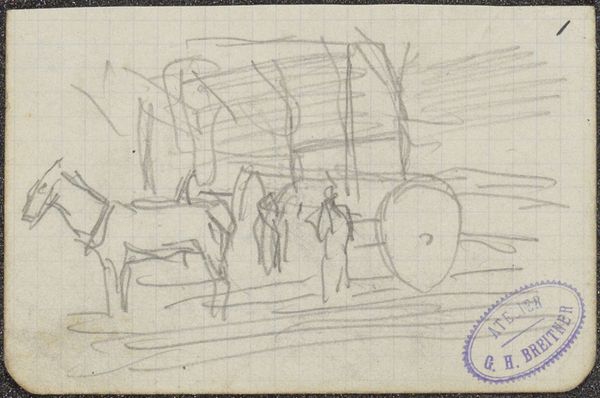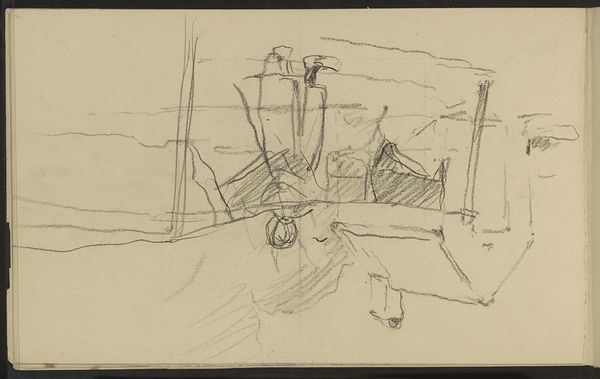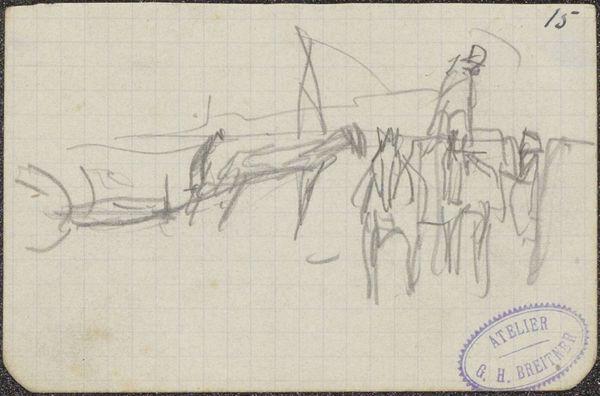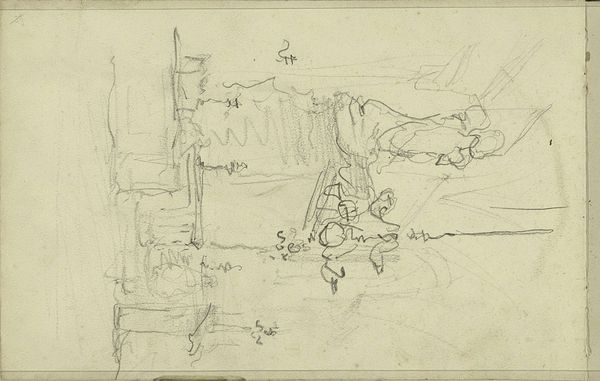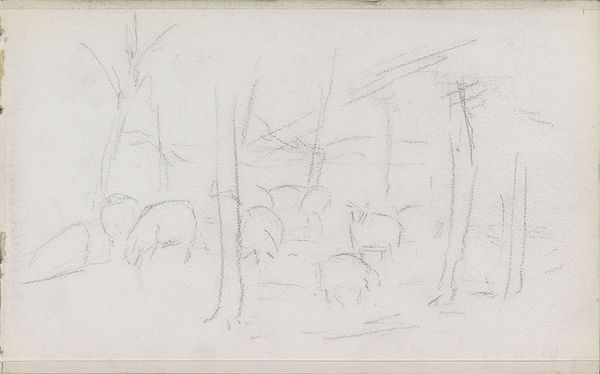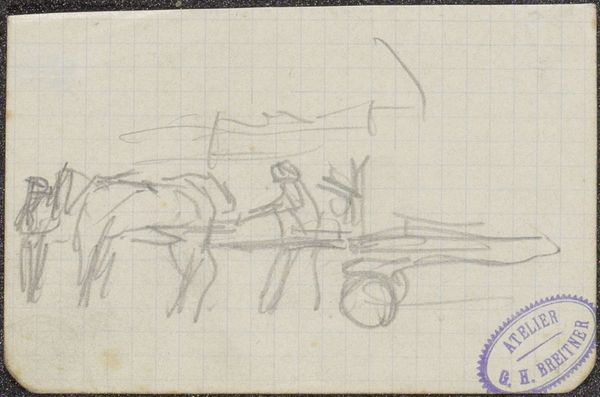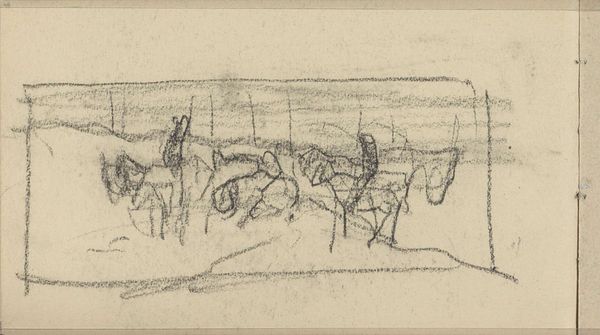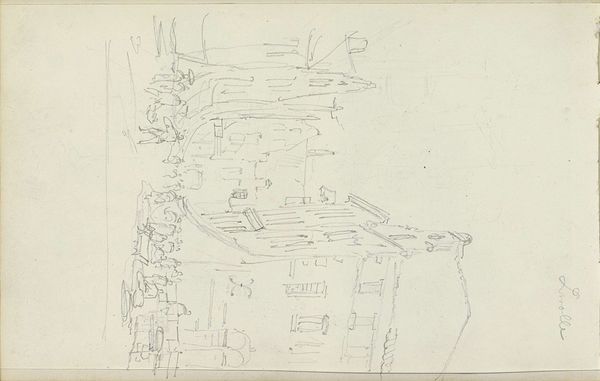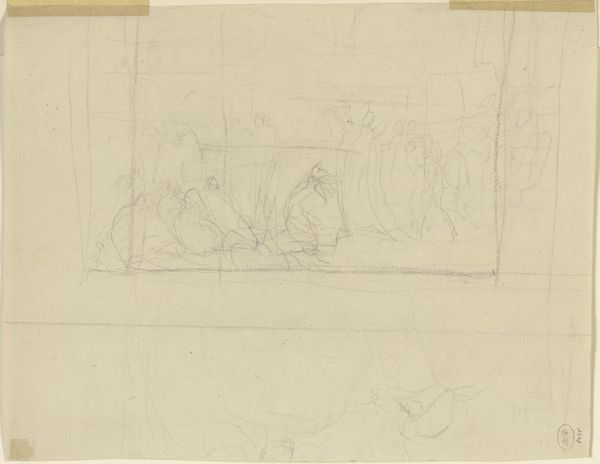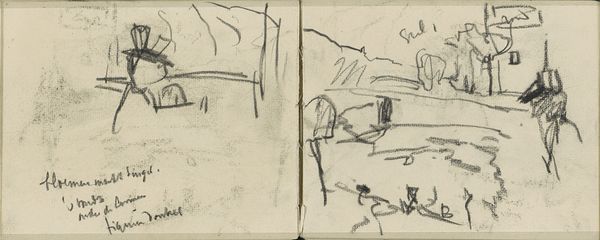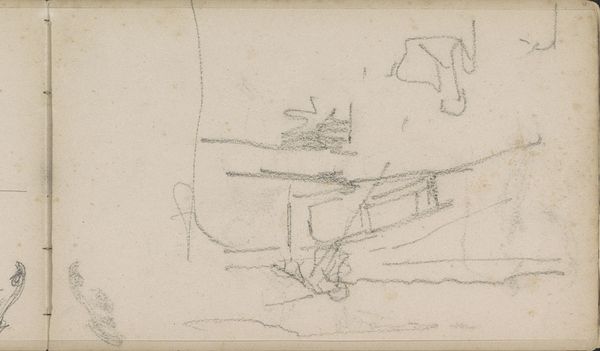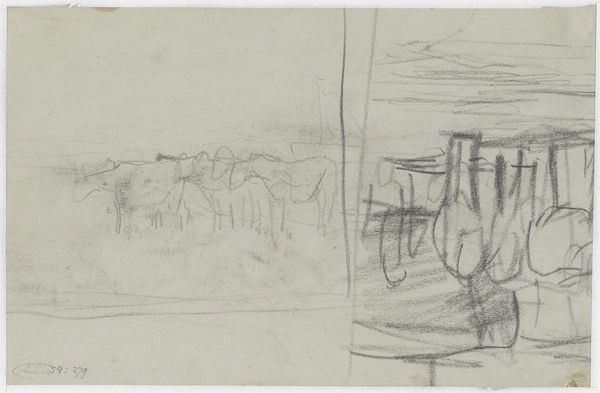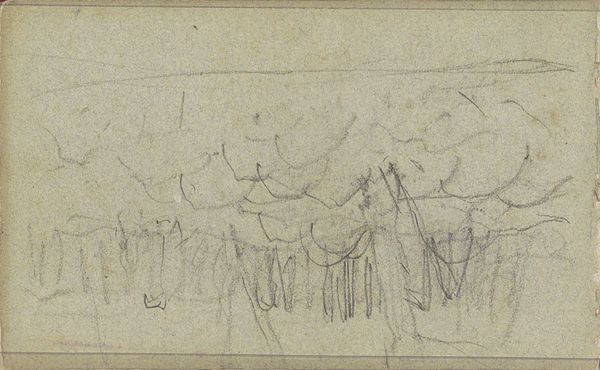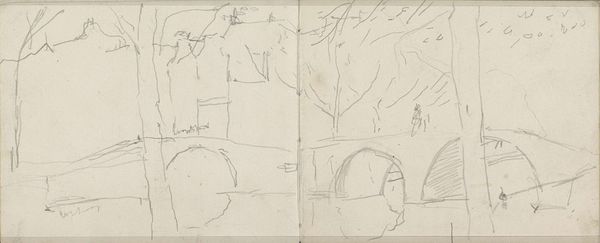
drawing, graphite
#
drawing
#
impressionism
#
landscape
#
horse
#
graphite
#
cityscape
Dimensions: height 65 mm, width 98 mm
Copyright: Rijks Museum: Open Domain
Editor: Here we have George Hendrik Breitner's 1890 graphite drawing, "Paarden en sleperskarren," or "Horses and Towing Carts." It feels very fleeting and immediate. What do you see in this piece, from a formal perspective? Curator: What strikes me immediately is the dynamic interplay between line and void. Breitner isn't so much depicting horses and carts as he is exploring the gestural potential of graphite on paper. Note the repeated use of short, broken lines and how they create a sense of movement. Consider the spatial relationship—does it conform to Renaissance perspective? Editor: I don't think so. It feels quite compressed. Almost flattened. Curator: Precisely. And observe how the artist uses the grid of the paper as a compositional element, creating a tension between the representational image and the underlying structure. How does this grid alter your viewing experience? Editor: It makes me think about the artistic process itself – it’s almost like a sketch from a notebook. Less like a finished piece, more like the seed of an idea. Curator: Indeed. The drawing privileges the act of seeing over the object seen, blurring boundaries between artwork and preliminary sketch. Would you agree that it captures a fragment, distilled to its fundamental visual components, which elevates our focus onto lines, marks, and paper texture, independent of narrative content? Editor: I think I agree! It’s less about horses and carts, and more about how we perceive movement and form. Thanks, I found your reading of line and composition particularly insightful. Curator: Likewise, your point regarding process is essential when engaging formally with an artwork like this.
Comments
No comments
Be the first to comment and join the conversation on the ultimate creative platform.
